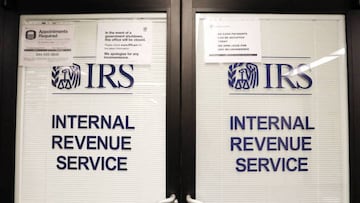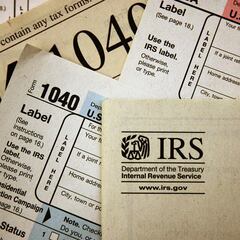How many tax refunds is the IRS sending on 14 July, and who are getting them?
After months of delays the agency is making a wave of payments to taxpayers who overpaid tax on unemployment benefits received during 2020 and are owed a refund.


The distribution of 2020 tax refunds has been hampered by delays with the IRS struggling to oversee various pandemic-era federal programmes while processing tax returns.
It was reported in late-May that the IRS was facing a backlog of 35 million unprocessed tax returns, nearly three times as many as there were at the same point the year before. Changes to the unemployment benefits system introduced by the American Rescue Plan mean that jobless support recipients were no longer required to pay tax on the first $10,200 they received in 2020.
All of this has combined to create huge delays in the tax refund process but the next major wave of payments is set to arrive very soon.
When will my IRS tax refund payment arrive?
The IRS has confirmed that it is readying the next round of tax refunds, which will see nearly four million taxpayers who overpaid taxes on their 2020 unemployment benefits get a payment. The agency has announced that on Wednesday, 14 July a wave of payments will be sent by direct debit to the recipients’’ bank accounts, while the remainder will be sent in the form of a paper check on Friday, 16 July.
This week, many Americans who filed for unemployment benefits last year will receive an average of $1,265 in tax refund adjustments. This tax credit will arrive automatically by paper check for eligible individuals.https://t.co/QiVgVwCiVE
— State Rep. Dan Frankel (@RepDanFrankel) July 14, 2021
The payments are continuing throughout the summer as the tax authority looks to work through that huge backlog, after similarly-sized rounds of payment also went out in May and June. Of the payments sent out in July’s round of payment the average refund amount is $1,265.
In May the Treasury Department released a report stating that by early March the IRS had already found 7.3 million tax returns that were eligible for a refund, and that number is now thought to have doubled. Do not worry if you are not included in this round of payments, there are plenty more to come later this year.
How to check the status of your tax refund payment
Related stories
This year, more than most, millions of Americans will be desperately waiting for their IRS tax refund to arrive. Many have suffered loses of income; financial insecurity and the resultant effect on their mental wellbeing as a result, and the lump sum payment could offer vital short-term support.
To check the status of your #IRS tax refund using “Where’s My Refund?,” you’ll need:
— IRSnews (@IRSnews) July 10, 2021
•Your SSN or ITIN
•Your tax filing status
•The exact amount of the refund you claimed
Visit: https://t.co/PFiedQsvmp pic.twitter.com/K61cTCVFzH
If your payment does not arrive in this round of tax refunds you can still check on the status for yourself, using the IRS’ handy Where’s My Refund? online tool. To do so, you simply need to access the portal and enter the following information when prompted:
- Your SSN or ITIN
- Your tax filing status
- The exact amount of the refund you claimed

